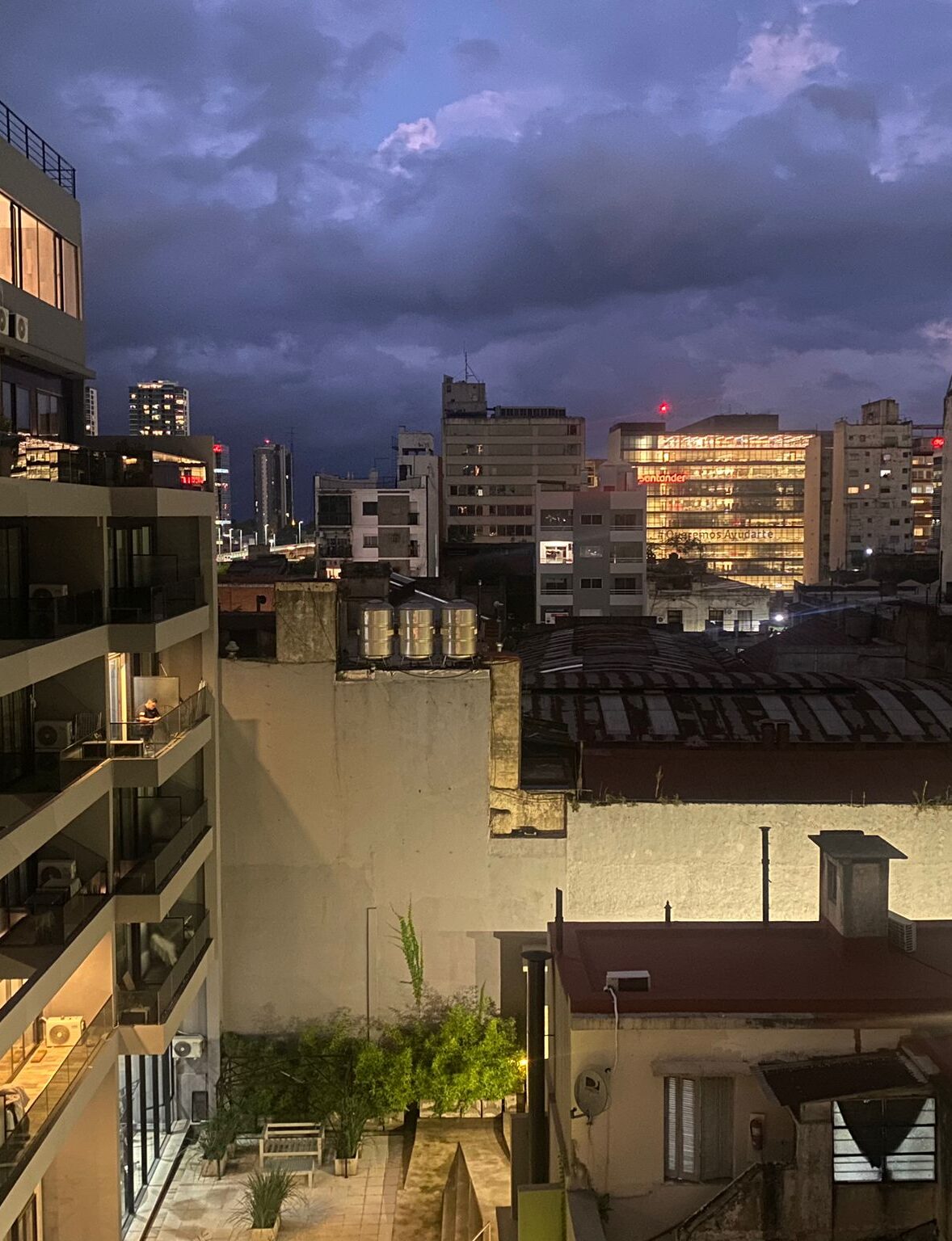We sat side by side on the shore, staring into the sky above the sea, as if we could see the hurricane approaching. The same as standing on the porch back home, scanning the horizon for a tornado, wondering where it would hit. But this was no tornado. There was no escaping it.
When the rain started, we left the beach and walked over the dune to the parking lot in front of the small hotel where we stayed. Red and black hurricane warnings hung from the flagpole at the entrance. There was no panic. No one was leaving. It was lunchtime.
Traffic was normal. Stores were open. The car radio said the hurricane had been updated to level 2, and the eye would hit landfall forty miles south, between Oregon Inlet and Hatteras. It was dark for midday, the clouds causing an early dusk, and the rain became heavier. The red and green neon sign of a Mexican restaurant shone through the blurred windshield.
The manager greeted us with a smile, and a few other customers were there eating. The waiters were relaxed and friendly, their quick spoken conversations in Spanish punctuated by laughter, drifting out from the kitchen.
The rain became worse, and the wind pushed the hanging stoplights horizontal above the intersection. We took our time eating, even ordered dessert, and after we finished and the waiter cleared their plates, we still waited.
Finally, I went to the register to pay, and asked if they would stay open.
“Oh sure,” the manager said as he put the cash in the drawer. “After it passes, you wouldn’t even know there was a storm.”
Outside, at first, it didn’t seem so bad. A summer thunderstorm. But when we cleared the edge of the building, the wind pushed us sideways, its noise like an explosion. We pushed against it, each of us holding a son, laughing, making a game of it so the kids weren’t scared.
The streets were empty now. On the beach road, I had to oversteer to fight the wind, and when the dune was low enough, we saw the storm swell that battered the flat gray sand for the first time.
Back at the hotel, the parking lot held three inches of water, and the flags on the pole ripped against their cords. We ran inside and stood dripping in the tiled foyer, grabbed towels from the bathroom, dried the kids and changed their clothes. Just as my wife started to pull her shirt over her head, I said, “Let’s go out in it. We’ll probably never get another chance to see something like this.”
We took turns. I put up the hood of my nylon jacket, tied the strings tight under my chin, and stepped out. Pushed to the deck across the pavement of the beach road. Wet sand lay plastered on the planks and rails. Sand stung my face and legs. Ears deaf in the roar. I staggered wind drunk to where I thought the water’s edge would be and waited. Breakers curled in every direction far out to the horizon. Not the orderly progression of tides from the day before, but a rage of whitewater that made even the land seem unstable. The water rushed in, and before I could react, I stood knee deep. The backwash was a massive hydraulic pulling me forward, and I curled my toes into the sand and leaned hard against the force, trying somehow to create a stronger gravity between my body and the earth. When the water subsided, I ran back to the rise of the dune and to our dry room to sit with the kids while she went out.
When my wife returned from the beach, soaked through and shivering, she said an old woman had called from her room as she passed. “Are you going to see it?”
“Yes!” my wife yelled over the wind.
The woman disappeared for a moment, then stepped out in a raincoat. She linked arms with my wife and said, “Well, honey, I want to see this thing, so we’ll just be brave together.”
And so they were.
James Alan Gill has published fiction, non-fiction, and poetry in several journals including Colorado Review, Crab Orchard Review, Midwestern Gothic, Prime Number Magazine, and Atticus Review, and has work forthcoming in the anthology Being: What Makes A Man. He currently lives in Oregon.




